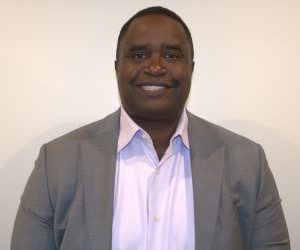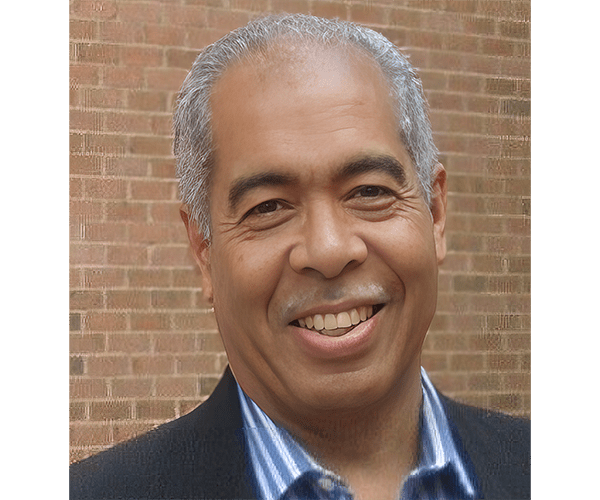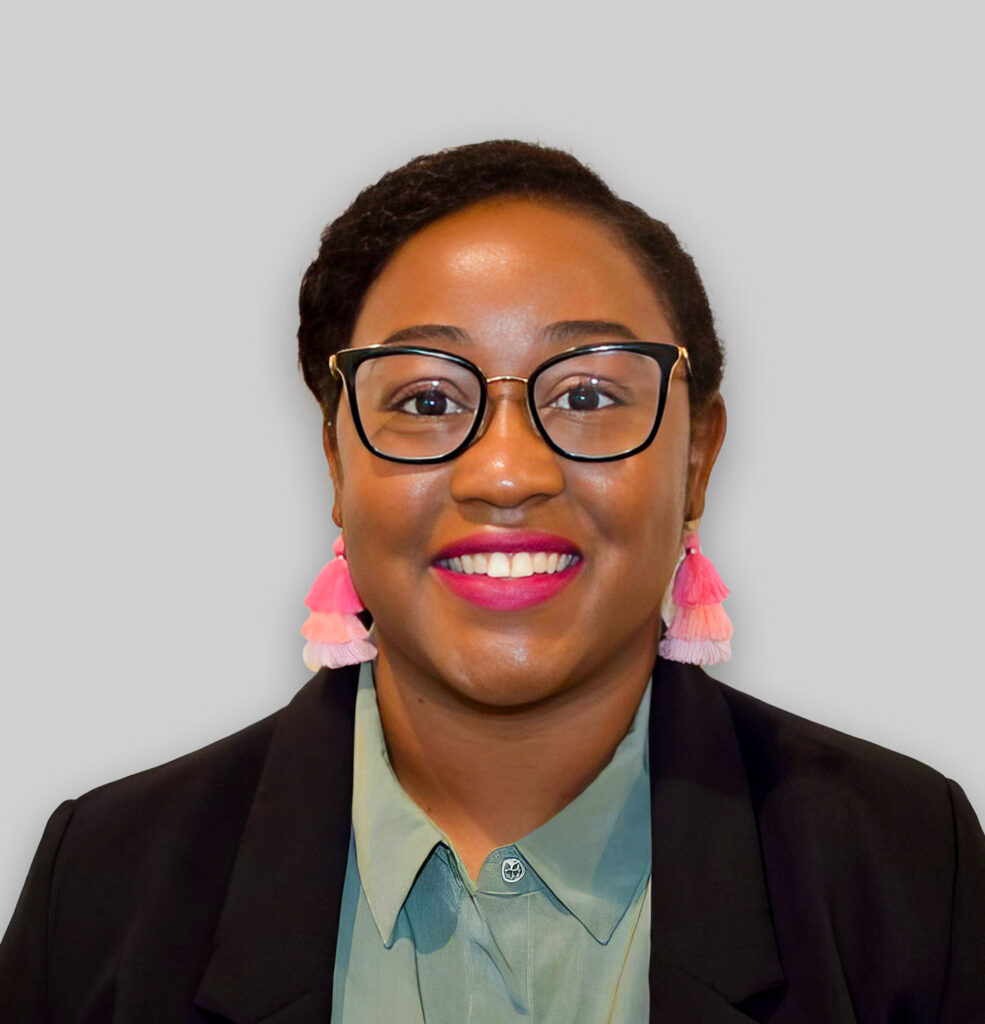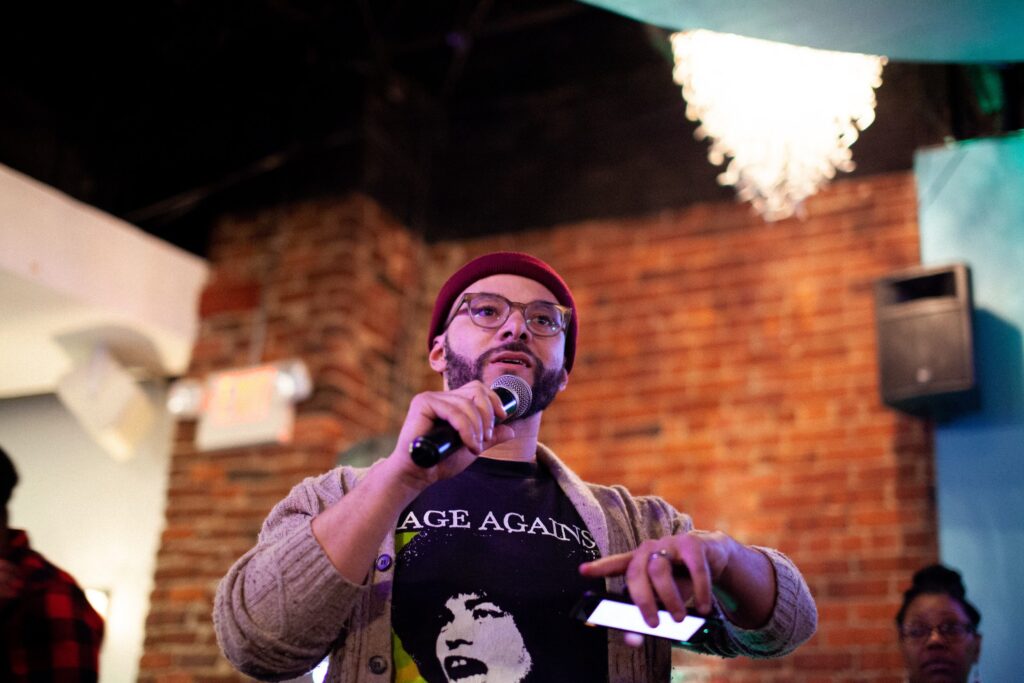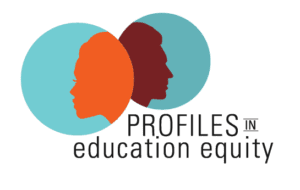
Augustus Mays is Ed Trust’s vice president for Partnerships and Engagement (P&E). He will coordinate Ed Trust’s P-12 and higher-ed policy agenda to ensure that organizational efforts to change federal and state policies via legislative, regulatory, and advocacy initiatives are aligned. Overseeing the P&E team, he will bring together stakeholders and partners to help advance Ed Trust’s mission and priorities at the national and state levels. The son of a logistician in the U.S. Air Force who retired at the rank of colonel, he moved frequently, but Augustus has called Northern Virginia home for more than 20 years. I talked to him about his background, his new role at Ed Trust, and the importance of coalition building.
What led you to advocate for education equity?
My parents are first-generation college graduates who’ve always valued education. They instilled that in my sister and me, and we were privileged to have the opportunity to go to schools that had the resources to support my education. But my parents pointed out the systemic racism embedded in this country’s institutions and made it known to us through our interactions with extended family, who lacked the same opportunities, that if we wanted to have an impact on the world, not only did we have to improve our lives through the pursuit of an education, but we needed to find ways to impart an equitable education on others. So, if certain family members were dropping out or being incarcerated, there were mitigating and systemic issues in their communities that were putting them in those positions. And I wanted to change that. I was drawn to political science and knew I wanted to get into social justice and education policy. So, when I entered the workforce, I sought opportunities to work for organizations that were trying to influence policymakers to create equitable opportunities in education.
What brought you to Ed Trust?
Public education is being politicized and weaponized to undo much of the progress that’s been made in our educational system, and I wanted to be closer to the advocates, policymakers, parents, and communities that are pushing back against efforts to undermine education. I was excited when the opportunity to work at Ed Trust emerged. Knowing the organization’s history and the impact it has had on equity in education, I couldn’t pass it up.
What are the most pressing education equity issues right now?
The COVID-19 pandemic disrupted the entire education system, but particularly our early learning and care system. We know that the first three years are key for a child’s development. And as we try to get the economy back on track, many Black and Latinx working families are struggling to find affordable child care, in part because many child care centers and providers closed during the pandemic, so it’s important that we continue to invest in child-care programs like Head Start, raise the salaries of child care providers, and ensure that our early learning programs are high quality and grounded in evidence and research-based practices.
At the P-12 level, the key issues have always been, what students should know, who’s teaching, and how those efforts are funded. But efforts to create a more inclusive, culturally responsive curriculum, develop a strong and diverse workforce, and improve funding mechanisms are under attack.
I also think there needs to be a greater focus on making college affordable and accessible to underserved students and ensuring that when they get to college, they get the support they need.
How do you plan to address these challenges, especially when the idea of equity is under attack?
I think, as an organization, we have to be unapologetic about defending educational rights and ensuring that every child has access to an equitable education and the subsequent college and career success. I also think we have to figure out a way to communicate not only to our strongest advocates and supporters, but to those folks who might feel that a more inclusive and equitable education takes away from their opportunities. We need to shine a light on how we’re all in this together and why investing in a more culturally responsive and inclusive education benefits not only underserved communities, but also the country. if we strengthen our educational systems, we’ll produce a stronger citizenry and democracy, and a more well-equipped workforce that can meet the demands and needs of our economy in the future.
What will you be doing in your new role?
The 2023 state legislative sessions just ended, so in my first 30-60 days, I want to unpack with my state teams those issue areas where we oppose legislation or policies that undermine our equity agenda. I want to see what can we do to slow down the implementation of harmful laws that were passed, or mitigate the damage, and find different solutions for our partners in the field to continue to pursue their equity agendas in their respective school systems. Then I’d like to gear up for next year’s legislative sessions and see how we can continue to push for more equitable policies.
Over the long term, my job will be to ensure that there’s alignment on the issues we’re advancing from a policy goal standpoint — from the national office down to the state offices — to support our state teams, like Louisiana and Texas, for example, and ensure that we have the right partnerships in those states and are talking about issues in a contextual way.
What is the role of partnerships/coalitions in Ed Trust’s work?
Partnerships are really about dissemination, right? We partner with organizations to inform their thinking about how they can use the research and data analysis we’re producing here at Ed Trust. But the engagement piece is about helping them use that information to advance their policy and advocacy goals and looking for opportunities to work with other partners that we haven’t traditionally brought under our tent. I think we want to do a better job of making our reports come to life, so they’re informing the messaging and the conversations we have with policymakers on the ground. If we can frame conversations on key issues in the language and context that people are comfortable with, that may open doors for us to have more productive conversations, especially with those groups we haven’t historically partnered with, about how to move our policy goals forward.
What’s your favorite quote?
It’s by Jackie Robinson, who was not only a great figure in American history, but a great person. But let me give you a little context. My grandfather loved baseball and followed the Negro Leagues in the 1940s. He became a Brooklyn Dodgers fan when they brought in Jackie in 1947. So, I’m a huge Dodgers’ fan, like my dad and everyone in my family, even though my mom is from Oklahoma and my dad is from Colorado. My dad shared this quote from Jackie Robinson with me — “A life is not important except in the impact it has on other lives” — and he made a plaque that he put in my room when I was a kid that I used to look at every day. And so, this idea that you must look beyond yourself and make sure that you not only strive to improve your life, but also the lives of others, was instilled in me and is central to how I live my life and how my wife and I raise our three beautiful children.




